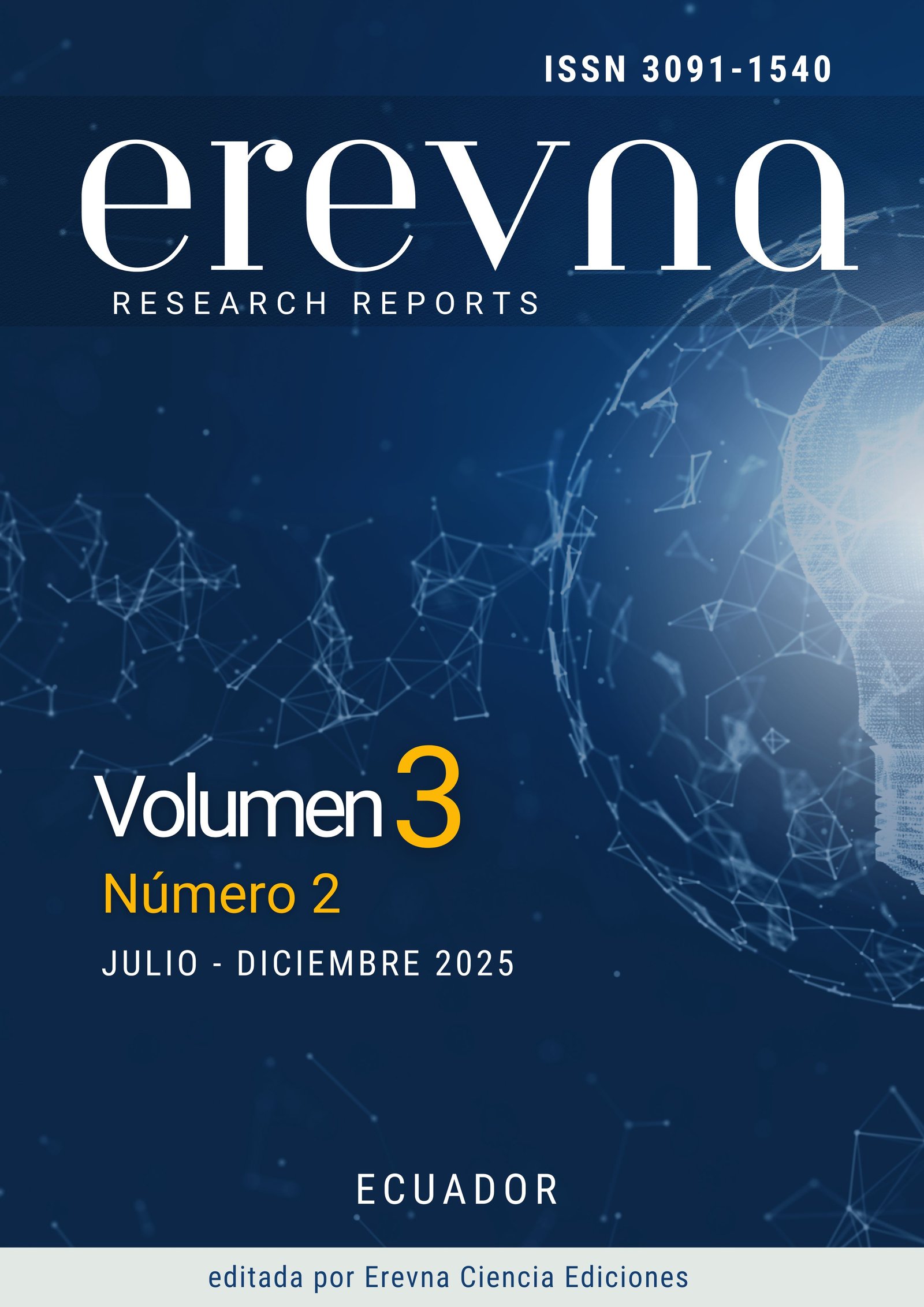Impact of Family Engagement on the Financial Performance of Family Businesses
DOI:
https://doi.org/10.70171/gjjeh725Keywords:
commitment, family business, corporate governance, profitabilityAbstract
Justification: family commitment influenced family firm performance, yet its effects varied according to internal and external conditions; therefore, an updated synthesis of recent research was required to guide strategic decision-making. Objectives: this review aimed to describe and interpret the findings of studies published between 2022 and 2025 that examined the relationship between family commitment and financial performance in family firms. Methodology: the PRISMA methodology was applied to conduct a systematic review in Scopus and Web of Science; from 3,896 records identified, 48 articles meeting relevance, open-access, language, and quantitative criteria were selected. Results: the studies showed that family commitment could have enhanced or impaired financial performance depending on leadership style, generation in control, institutional context, and emphasis on socioemotional goals; higher resilience during crises and lower investment in innovation were also observed in certain cases. Conclusions: family commitment emerged as a complex variable whose impact varied by contextual factors; its proper management could generate sustainable competitive advantages, whereas lack of professional structures could have constrained the effectiveness of economic decision-making.
Downloads
References
Ahmad, S., Siddiqui, K. A., & AboAlsamh, H. M. (2020). Family SMEs’ survival: the role of owner family and corporate social responsibility. Journal of Small Business and Enterprise Development, 27(2), 281–297. https://doi.org/10.1108/JSBED-12-2019-0406
Andi, K., Isnaeni, R., & Widiyanti, A. (2019). The effect of corporate social performance on financial performance with firm size as a control variable. Humanities and Social Sciences Reviews, 7(4), 651–658. https://doi.org/10.18510/hssr.2019.7485
Barakat, S. R., Parente, T. C., & Sarturi, G. (2020). Stakeholders prioritization in family businesses: a theoretical essay. Iberoameircan Journal of Entrepreneurship and Small Business, 9(3), 293–322. https://doi.org/10.14211/regepe.v9i3.1532
Barbera, F., Hasso, T., & Schwarz, T. V. (2023). Family governance and firm performance: exploring the intermediate effects of family functioning and competitive advantage. Journal of Family Business Management, 13(4), 1085–1103. https://doi.org/10.1108/JFBM-06-2022-0076
Barros, I., Hernangómez, J., & Martin-Cruz, N. (2017). Familiness and socioemotional wealth in Spanish family firms: An empirical examination. European Journal of Family Business, 7, 14–24. https://doi.org/10.1016/j.ejfb.2017.06.004
Basly, S., & Saunier, P. L. (2020). Family members’ commitment to the firm and family business continuity: investigating the mediating role of family-to-firm identity fit and emotional attachment. Journal of Small Business and Entrepreneurship, 32(1), 1–24. https://doi.org/10.1080/08276331.2018.1551458
Berrone, P., Cruz, C., & Gomez-Mejia, L. R. (2012). Socioemotional Wealth in Family Firms: Theoretical Dimensions, Assessment Approaches, and Agenda for Future Research. In Family Business Review (Vol. 25, Issue 3, pp. 258–279). https://doi.org/10.1177/0894486511435355
Bettinelli, C., Del Bosco, B., Gentry, R. J., & Dibrell, C. (2023). The influence of board social activity on firm performance. Journal of Family Business Strategy, 14(2), 1–13. https://doi.org/10.1016/j.jfbs.2023.100552
Botchkarev, A., & Andru, P. (2011). A Return on Investment as a Metric for Evaluating Information Systems: Taxonomy and Application. Interdisciplinary Journal of Information, Knowledge, and Management, 6(6), 246–268. https://doi.org/10.28945/1535
Buchanan, B., Martikainen, M., & Nikkinen, J. (2023). Family firm competitiveness and owner involvement. Journal of Applied Accounting Research, 24(2), 260–281. https://doi.org/10.1108/JAAR-11-2021-0317
Chirico, F., & Kellermanns, F. W. (2024). When does time enhance family firm performance? Examining family generation in control and family control dispersion through a mixed-gamble logic. Long Range Planning, 57(1), 1–15. https://doi.org/10.1016/j.lrp.2022.102272
D’Allura, G. M., Calabrò, A., Bannò, M., & Pisano, V. (2024). Family firms’ equity entry modes: Bridging family business and international business. Journal of Management and Organization, 1–21. https://doi.org/10.1017/jmo.2024.14
Davis, J. H., Allen, M. R., & Hayes, H. D. (2010). Is blood thicker than water? A study of stewardship perceptions in family business. Entrepreneurship: Theory and Practice, 34(6), 1093–1116. https://doi.org/10.1111/j.1540-6520.2010.00415.x
Dawson, A., Sharma, P., Irving, P. G., Marcus, J., & Chirico, F. (2015). Predictors of later-generation family members’ commitment to family enterprises. Entrepreneurship: Theory and Practice, 39(3), 545–569. https://doi.org/10.1111/etap.12052
Dibrell, C., Gamble, J. R., Clinton, E., & Sherlock, C. (2024). Family firm innovativeness: an investigation of family governance, commitment, and generation involvement. Entrepreneurship and Regional Development, 1–44. https://doi.org/10.1080/08985626.2024.2338171
Drees, J. M., & Heugens, P. P. M. A. R. (2013). Synthesizing and Extending Resource Dependence Theory: A Meta-Analysis. Journal of Management, 39(6), 1666–1698. https://doi.org/10.1177/0149206312471391
Fatihudin, D., & Mochklas, M. (2018). How Measuring Financial Performance. International Journal of Civil Engineering and Technology (IJCIET, 9(6), 553–557. https://doi.org/10.34218/IJCIET
Fuetsch, E. (2022). Innovation in Family Farms: The Roles of the Market, the Family, and Farm Performance. Journal of Small Business Strategy, 32(2), 83–103. https://doi.org/10.53703/001C.31714
Herrero, I., López, C., & Ruiz-Benítez, R. (2024). So … are family firms more sustainable? On the economic, social and environmental sustainability of family SMEs. Business Strategy and the Environment, 33(5), 4252–4270. https://doi.org/10.1002/bse.3699
Jarchow, S., Kaserer, C., & Keppler, H. (2023). Family firm performance in times of crisis—new evidence from Germany. Eurasian Business Review, 13(3), 543–580. https://doi.org/10.1007/s40821-023-00248-1
Jiang, H., Luo, Y., Xia, J., Hitt, M., & Shen, J. (2023). Resource dependence theory in international business: Progress and prospects. Global Strategy Journal, 13(1), 3–57. https://doi.org/10.1002/gsj.1467
Kinias, I. (2022). The Performance of Family Firms During Crisis Periods: The Case of Greece. European Journal of Family Business, 12(1), 63–79. https://doi.org/10.24310/ejfbejfb.v12i1.13020
Leonidou, L. C., Eteokleous, P. P., Christodoulides, P., & Strømfeldt Eduardsen, J. (2023). A dynamic capabilities perspective to socially responsible family business: Implications on social-based advantage and market performance. Journal of Business Research, 155, 1–17. https://doi.org/10.1016/j.jbusres.2022.113390
Maharajh, R., Dhliwayo, S., & Chebo, A. K. (2024). The influence of family dynamics on business performance: does effective leadership matter? Journal of Family Business Management, 14(3), 515–533. https://doi.org/10.1108/JFBM-04-2023-0058
Mahto, R., McDowell, W. C., & Davis, P. (2020). Influence and values: The connection between participation and commitment in family firms. Journal of Business Research, 112, 354–362. https://doi.org/10.1016/j.jbusres.2019.10.057
Martínez-Romero, M. J., Martínez-Alonso, R., & Casado-Belmonte, M. P. (2020). The influence of socioemotional wealth on firm financial performance: evidence from small and medium privately held family businesses. 40(1), 7–31. https://doi.org/10.1504/IJESB.2020.106930
Melé, D. (2009). The View and Purpose of the Firm in Freeman’s Stakeholder Theory. Philosophy of Management, 8(3), 3–13. https://doi.org/10.5840/pom2009832
Miroshnychenko, I., Torres de Oliveira, R., De Massis, A., & Überbacher, R. (2024). Family Involvement and Firm Performance: A Worldwide Study Unveiling Key Mechanisms. Family Business Review, 37(4), 449–475. https://doi.org/10.1177/08944865241290856
Miroshnychenko, I., Vocalelli, G., De Massis, A., Grassi, S., & Ravazzolo, F. (2024). The COVID-19 pandemic and family business performance. Small Business Economics, 62(1), 213–241. https://doi.org/10.1007/s11187-023-00766-2
Mohsin, H. J., Ahmed, S. A., & Streimikiene, D. (2020). Evaluating the financial performance by considering the effect of external factors on organization cash flow. Contemporary Economics, 14(3), 406–414. https://doi.org/10.5709/ce.1897-9254.413
Muñoz-Bullón, F., Sanchez-Bueno, M. J., & Velasco, P. (2023). Exploring the link between family ownership and leverage: a mediating pathway through socioemotional wealth objectives. Review of Managerial Science, 18(11), 3203–3252. https://doi.org/10.1007/s11846-023-00713-1
Neubaum, D. O., Thomas, C. H., Dibrell, C., & Craig, J. B. (2017). Stewardship Climate Scale: An Assessment of Reliability and Validity. Family Business Review, 30(1), 37–60. https://doi.org/10.1177/0894486516673701
Nienhüser, W. (2008). Resource dependence theory: How well does it explain behavior of organizations? Management Revue, 19(2), 9–32. https://doi.org/10.5771/0935-9915-2008-1-2-9
Poletti-Hughes, J., & Martínez Garcia, B. (2022). Leverage in family firms: The moderating role of female directors and board quality. International Journal of Finance and Economics, 27(1), 207–223. https://doi.org/10.1002/ijfe.2147
Razzak, M., Mustamil, N., & Bakar, R. A. (2020). Research gaps in family owned businesses:a conceptual link between socio-emotional wealth,family commitment and firm performance. International Journal of Business Excellence, 20(2), 205–222. https://doi.org/10.1504/ijbex.2019.10017983
Razzak, M. R., & Jassem, S. (2019). Socioemotional wealth and performance in private family firms: The mediation effect of family commitment. Journal of Family Business Management, 9(4), 468–496. https://doi.org/10.1108/JFBM-05-2019-0035
Saidat, Z., Alrababa’a, A. R., & Seaman, C. (2022). Family-owned banks in Jordan: do they perform better? Journal of Family Business Management, 12(4), 637–652. https://doi.org/10.1108/JFBM-11-2021-0140
Santulli, R., Gallucci, C., Torchia, M., & Calabrò, A. (2022). Family managers’ propensity towards mergers and acquisitions: the role of performance feedback. Journal of Small Business and Enterprise Development, 29(2), 293–310. https://doi.org/10.1108/JSBED-01-2019-0033
Schweiger, N., Matzler, K., Hautz, J., & De Massis, A. (2024). Family businesses and strategic change: the role of family ownership. Review of Managerial Science, 18(10), 2981–3005. https://doi.org/10.1007/s11846-023-00703-3
Sherer, P. D., Suddaby, R., & Rozsa de Coquet, M. (2019). Does Resource Diversity Confer Organizational Autonomy In Arts Organizations? Extending Resource Dependence Theory. Journal of Arts Management Law and Society, 49(4), 224–241. https://doi.org/10.1080/10632921.2018.1559265
Smulowitz, S. J., Cossin, D., De Massis, A., & Lu, H. (2023). Wrongdoing in Publicly Listed Family- and Nonfamily-Owned Firms: A Behavioral Perspective. Entrepreneurship: Theory and Practice, 47(4), 1233–1264. https://doi.org/10.1177/10422587221142230
Strobl, A., Kallmuenzer, A., & Peters, M. (2023). Entrepreneurial Leadership in Austrian Family SMEs: A Configurational Approach. International Small Business Journal: Researching Entrepreneurship, 41(2), 152–180. https://doi.org/10.1177/02662426221084918
Tan, Q., Guo, M., & Zhang, M. (2024). Family involvement in management and risk-taking of family firms: The moderating role of kinship composition. Journal of Business Research, 182, 1–11. https://doi.org/10.1016/j.jbusres.2024.114759
Theodoulidis, B., Diaz, D., Crotto, F., & Rancati, E. (2017). Exploring corporate social responsibility and financial performance through stakeholder theory in the tourism industries. Tourism Management, 62, 173–188. https://doi.org/10.1016/j.tourman.2017.03.018
Tiziana Casciaro, & Mikolaj Jan Piskorski. (2005). Power imbalance, mutual dependence, and constraint absorption: A closer look at resource dependence theory. Administrative Science Quarterly, 50, 167–199.
Valentino, A., Diaz Matajira, L., & Szymanska, I. (2025). Crisis management in family firms: the combinations of family business involvement and directive leadership that influence business and social performance. Journal of Family Business Management, 1–22. https://doi.org/10.1108/JFBM-10-2024-0247
Vlasic, G. (2023). Comparative analysis of the role of strategic orientation, strategic performance metric focus and strategic audacity in driving firm performance: family businesses vs nonfamily businesses. Journal of Family Business Management, 13(1), 7–25. https://doi.org/10.1108/JFBM-03-2022-0048
Wang, Y., & Beltagui, A. (2023). Does intergenerational leadership hinder the realization of innovation potential? A resource orchestration perspective. Journal of Small Business Management, 61(4), 1704–1735. https://doi.org/10.1080/00472778.2020.1866764
Zahra, S. A., Hayton, J. C., Neubaum, D. O., Dibrell, C., & Craig, J. (2008). Culture of Family Commitment and Strategic Flexibility: The Moderating Effect of Stewardship. Entrepreneurship: Theory and Practice, 32(6), 1035–1054. https://doi.org/10.1111/j.1540-6520.2008.00271.x
Zhu, C. Y., Villar, A. S., & Parada Balderrama, M. J. (2025). Toward sustainability: ESG bridging socioemotional wealth and sustainable financial in family firms. Sustainable Futures, 9, 1–10. https://doi.org/10.1016/j.sftr.2025.100470
Downloads
Published
Issue
Section
Categories
License
Copyright (c) 2025 Camila G. Ramírez-de-Castro, Tommy J. Lo-Li (Autor/a)

This work is licensed under a Creative Commons Attribution-NonCommercial-ShareAlike 4.0 International License.






















